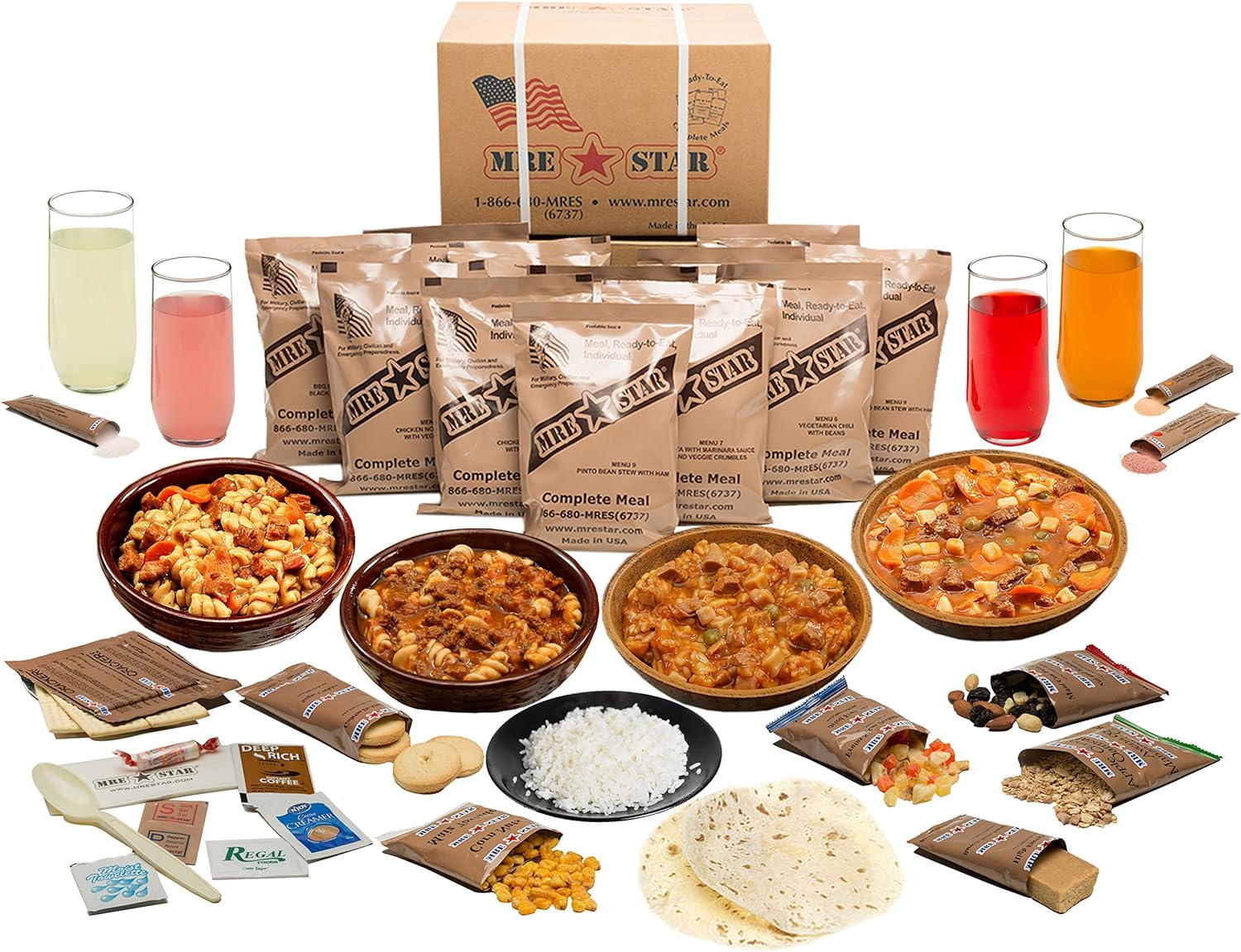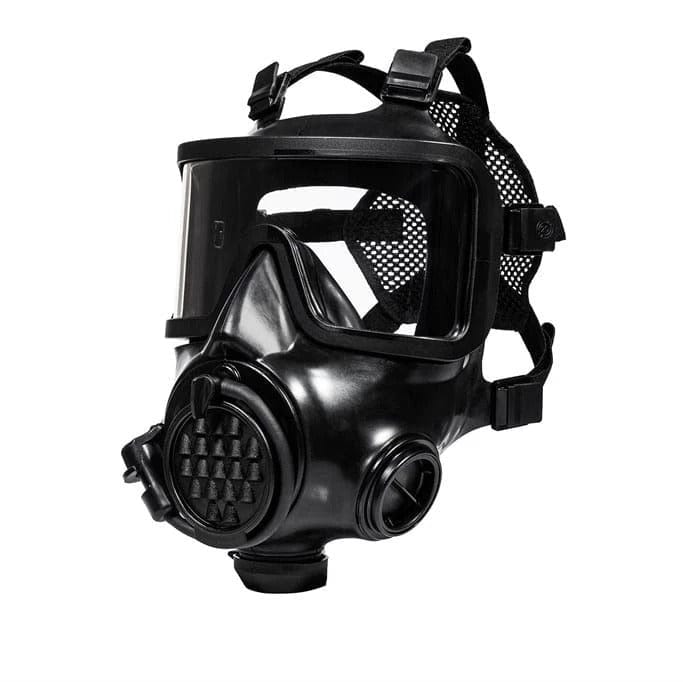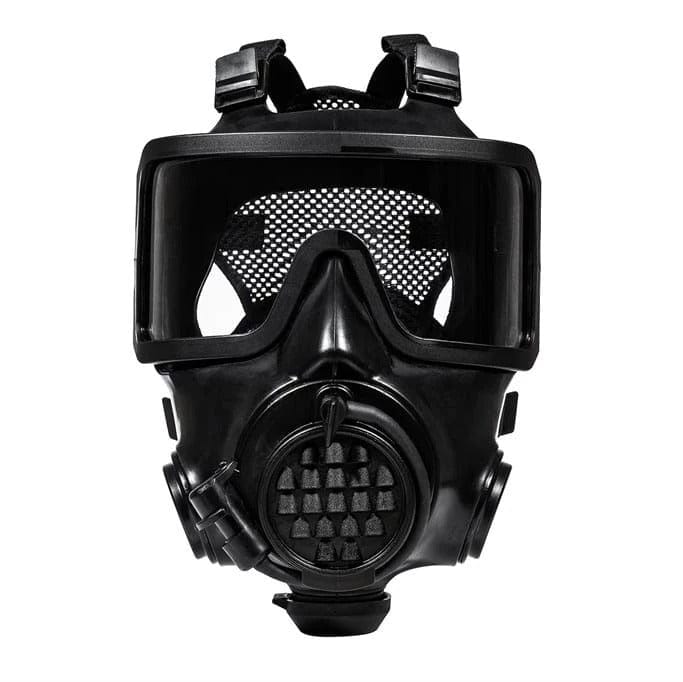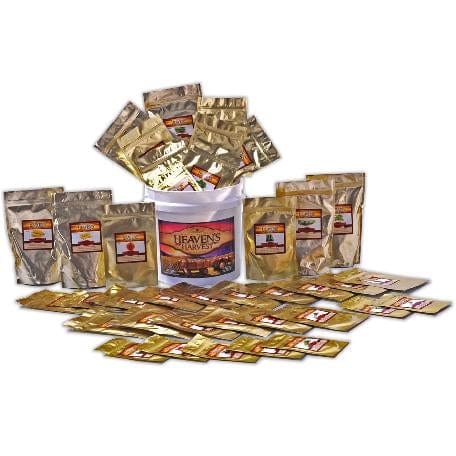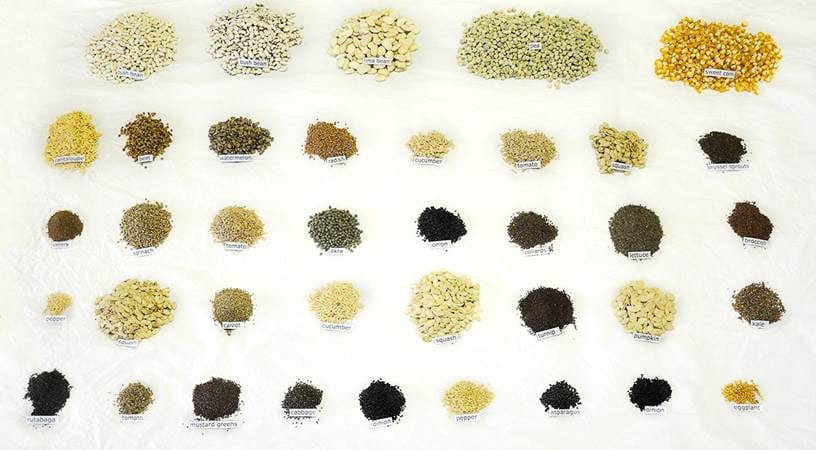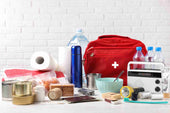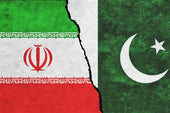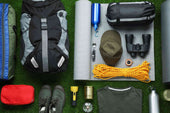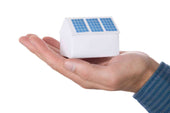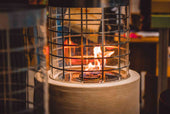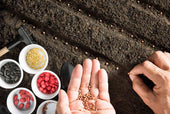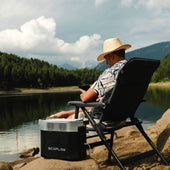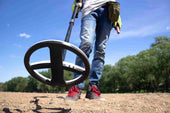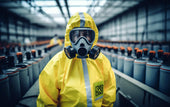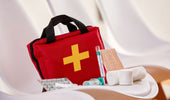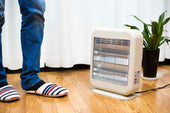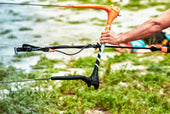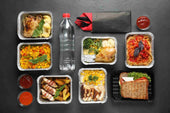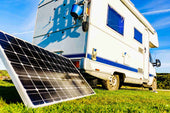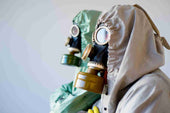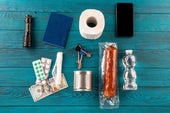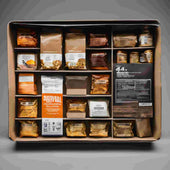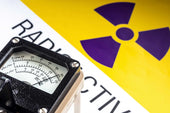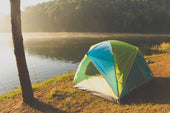Off-grid living comes with various obstacles, some of which you may be prepared for and others you may only have thought of once they occur.
For many, hygiene belongs to the latter category. Most of us take for granted easy access to soaps, shampoos, toothpaste, and other modern conveniences for personal hygiene.
Hygiene is a serious matter, even though it may appear like a delicate topic or one to joke about. Your health must keep yourself and your family clean if you are off the grid. You risk spreading infections to others and getting severe illnesses if you don't practice good hygiene.
Off the Grid Hygiene and Sanitation
Getting multiple everyday household items can help you prepare for hygiene. Smart preppers understand the importance of stockpiling food and water, but hygiene products are also necessary to reduce the spread of disease and illness. It also aids in maintaining a sense of normalcy.
However, whether you are off the grid, prepping, or getting into prepping mode, there are ways to maintain good hygiene and health.

Prepare Your Stockpile
Good planning and preparation are essential skills for every off-grid homesteader and prepper. Before a calamity strikes, make sure hygiene is on your prep list.
Start by stocking up on goods as you arrange for hygiene and healthcare.
✔ List the items you use to keep yourself clean, then gather them. These may include soap, shampoo, deodorant, hand sanitizer, wet wipes, tampons, and other products you can't live without.
✔Leave out those products that are not essential for health and safety if you need to cut back since your storage space is constrained. For instance, you don't need conditioner or deodorant and can get by with a dual soap/shampoo. However, do not forget to include items like soap, hand sanitizer, and first aid kits.
Secure Your Clean Water
A consistent, clean water source is the most crucial element of off-grid life and is necessary for maintaining basic hygiene.
Before you complete any plans to live off the grid, ensure you have your water sorted and many sources planned.
Have a plan to conserve clean water for use when a crisis arises. This can entail stocking up on bottled water and filling your bathtub with water.
Long-term, a well is the best option.
✔Choose a spot where you may dig a well for personal use if you are moving. Having a well nearby is preferable to being close to a stream.
✔Use rain barrels even if you have a well or another water source. The more water you have, the easier it will be to maintain cleanliness.
Your cleanliness and, consequently, your health will suffer if you have to be frugal with your water usage due to a lack of supplies.
Your Bathroom
Doing your thing off the grid can be messy and hazardous. If your plumbing and septic systems are operating well, you are fortunate! If you still need to, you have a couple of choices.
Keep it clean if you want to use the bathroom without indoor plumbing.
✔Keep sawdust available if you dig a pit toilet so that everyone may cover up after using the pit.
✔To keep the pit clean, lime can also be placed inside it.
✔You can still use toilets even if you don't have flowing water as long as you have a steady water supply. Just pour in enough water to flush the feces down the toilet.
You can prepare by stocking up on toilet paper, but you might eventually need more. Any form of toilet paper will do, as will using leaves. Just watch out for poison ivy.
Ensure that everyone in the home knows to wash their hands after using the restroom. If you don't have running water, sanitary wipes or alcohol-based hand sanitizer are suitable substitutes.
Your Sanitation Area
You can maintain cleanliness as long as you have access to enough water. Even though it might not be as simple as running the dishwasher or taking a shower, it will be possible. You can take a natural, biodegradable soap bath in a nearby river or pond.
Being clean and choosing the appropriate location for your sanitation requirements are equally crucial.
✔Your disposal site must be situated away from any water source that can be used.
✔Additionally, it must be a few hundred feet away from lakes, rivers, or streams.
✔It also helps to have your trash location away from your living space but not too far away so that it prevents others from using it.
Alternatively, you can wash up using a camp shower. You fill the bladder with water, hang it on a tree branch, and let the sun warm it.
These devices, also known as solar showers, allow you to take a warm outdoor shower by turning on the nozzle.
Living off the grid requires careful consideration when washing dishes and eating utensils. We often take for granted dishwashers' excellent sanitizing capabilities.
If you can, rinse your dishes in a mild bleach solution after washing them in hot water and soap. The latter is especially crucial if you are living in a large group.
Keep Your Food Sanitary
To keep bears and other wild creatures away, all food waste should be burned or buried in a pit far from the home.
✔Keep all of your food off the ground and covered.
✔You can store your food in a tree, but be sure that no wildlife that lives in trees can access it.
✔Immediately after usage, all lids on water bottles and other containers should be replaced.
Dishwashing should be done somewhere other than where you get your drinking water. Wash your dishes away from a creek instead.
Clean dishes or eat from the original food containers to stop the spread of germs.
Wash and peel all fruits and vegetables before eating. Prepare just enough food for each meal.
Must-Have Items for Your Sanitation Kit
Sanitation supplies are simple to collect. You might prefer a prepared emergency kit with all your toiletries and grooming supplies.
Buying a kit is affordable and practical to prepare everything you'll need in an emergency because many kit elements are marketed as a unit.
Making your emergency kit allows you to include brands or supplies that your family is used to utilizing.
You can frequently buy your preferred brand of soap, toothpaste, shampoo, deodorant, and other products in bulk or extra-saving containers, making it easier to afford to set aside some for your emergency kit.
Below are some items to consider:
Toilet Paper
Any toilet paper is a luxury in an emergency. Planning can prevent unnecessary agony from getting used to a different paper texture.
Also, remember that stomach problems brought on by stress and poor diet are frequent in emergencies and might make it harder for you to maintain good hygiene.
Oral Hygiene and Toothbrushes
Those with sensitive teeth may wish to keep their favorite toothbrush brand in their emergency sanitation kit.
It is usually a good idea to keep extra toothbrushes on hand to give to someone who forgot to stow one. They might also serve a proper function, such as cleaning or scrubbing.
Mouthwash, Toothpaste, and Breath Fresheners Emergencies provide difficult circumstances where effective human interaction is essential.
When water is limited or unavailable, your mouth might feel dry. Consider including a breath refresher in your sanitation kit.
Feminine Hygiene Products
It's crucial to be ready for everything, and having these supplies on hand in an emergency is unquestionably essential.
Deodorant
Several deodorant options include antiperspirants, brands specifically designed for women, and gelled deodorants.
You should know ahead of time what you'll need in an emergency.
Air Fresheners
Deodorants or air fresheners also make you feel more comfortable amid a crisis.
Hair Supplies
While they might not be essential for survival, shampoo, conditioner, hairspray, combs, brushes, and other products can make an emergency scenario more pleasant and hygienic.
Your emergency kit should contain smaller sanitary supplies. However, be aware that it is possible to overpack it. If it is too heavy, you might be unable to carry it in an emergency.
Medications
To offer comfort, kits should also contain medications for mild illnesses like allergies, diarrhea, constipation, and headaches.
Laundry Detergent and Soap
Sometimes, you might need to leave the area or be trapped in a far-off location.
Because you won't have much clothing, you'll need detergent to clean your clothes and soap to bathe and wash your dishes.
Hand Sanitizers
Additionally, you must include hand sanitizers in your bug-out bag.
Off-Grid Living: Maintaining Hygiene
Some people live in tiny homes in unusual places, such as buses, trailers, or RVs. Conversely, some individuals are turning to tiny homes because they are expensive.
Here are some strategies for maintaining hygiene when you go on a trip and live off the grid for a month or two. You don't want to get sick or bring illnesses back home.
Living off the grid presents challenges that may not be faced in a city or town. The primary challenge is sourcing clean water, essential for many activities.
If clean water is unavailable, try boiling it to remove bacteria and pathogens. Keeping yourself clean is crucial to maintaining hygiene while off the grid.




